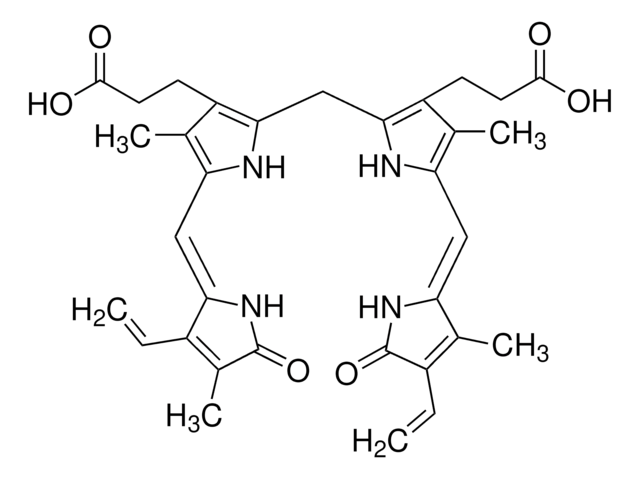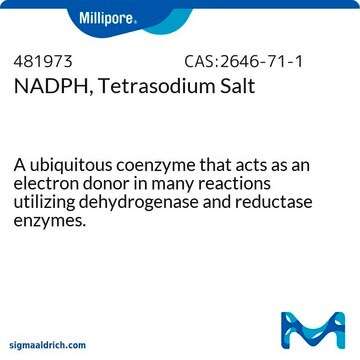2011
Bilirubin
solid, bile pigment, Calbiochem®
Synonym(s):
Bilirubin
About This Item
Recommended Products
product name
Bilirubin, Principal pigment of bile and one of the major end products of hemoglobin decomposition.
Quality Level
form
solid
manufacturer/tradename
Calbiochem®
storage condition
OK to freeze
protect from light
color
red-brown
solubility
chloroform: 1 mg/mL
alkaline solution: soluble
shipped in
ambient
storage temp.
10-30°C
InChI
1S/C33H36N4O6/c1-7-20-19(6)32(42)37-27(20)14-25-18(5)23(10-12-31(40)41)29(35-25)15-28-22(9-11-30(38)39)17(4)24(34-28)13-26-16(3)21(8-2)33(43)36-26/h7-8,13-14,34-35H,1-2,9-12,15H2,3-6H3,(H,36,43)(H,37,42)(H,38,39)(H,40,41)/b26-13-,27-14-
InChI key
BPYKTIZUTYGOLE-IFADSCNNSA-N
General description
Biochem/physiol Actions
Reconstitution
Other Notes
Cell permeable: no
Reversible: no
Product does not compete with ATP.
Primary Target
Legal Information
Storage Class Code
11 - Combustible Solids
WGK
WGK 2
Flash Point(F)
Not applicable
Flash Point(C)
Not applicable
Certificates of Analysis (COA)
Search for Certificates of Analysis (COA) by entering the products Lot/Batch Number. Lot and Batch Numbers can be found on a product’s label following the words ‘Lot’ or ‘Batch’.
Already Own This Product?
Find documentation for the products that you have recently purchased in the Document Library.
Customers Also Viewed
Our team of scientists has experience in all areas of research including Life Science, Material Science, Chemical Synthesis, Chromatography, Analytical and many others.
Contact Technical Service









